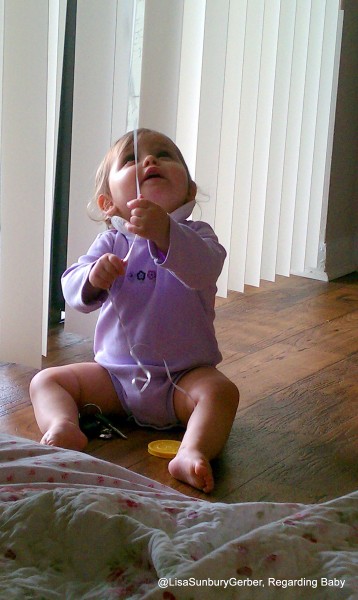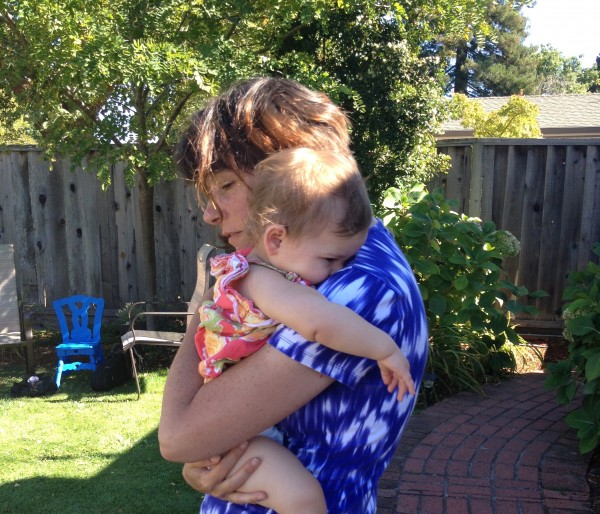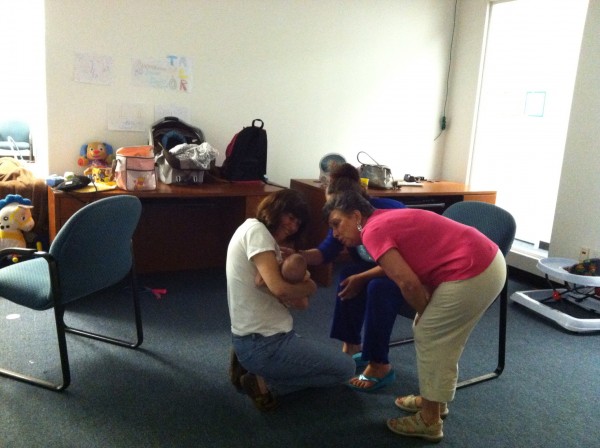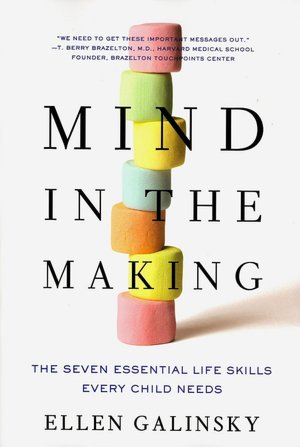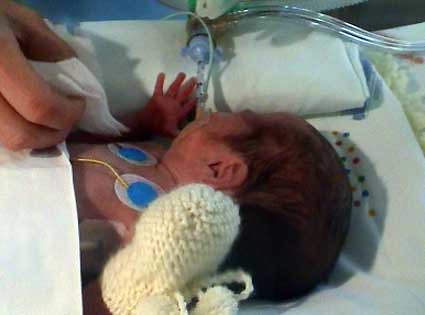As many of you know, I am in the (very long, painfully slow) process of adopting my niece R from the foster care system, and to that end, I have been required to remain in the state of Florida (where she was born) throughout this past year. On December tenth, R and I received a ruling from the court that I consider to be nothing short of a Christmas miracle. The judge approved my request to return home to Santa Cruz, California, with R, in February of 2014.
One year ago, R was just shy of five months old, and we had been together for just three weeks:
Tomorrow, she will be 17 months old, and we will have been together for a little over a year. She is a RIE baby through and through and has developed all of her gross motor milestones naturally.
I was in the kitchen preparing dinner last week, while she contentedly played in her play area. I turned around to see her sitting at the top of the small, wooden climbing structure that had been sitting in her play space since she was about 6 months old. She had never paid any attention to it before. I grabbed the phone camera, and for the next half hour, I watched and recorded in silent awe, as she proceeded to navigate the climber on her terms:
Those of you who have been following us on our journey through this past year know that it’s been quite a ride. They say it takes a village to raise a child, and for us, that phrase holds special meaning. Through it all, despite being quite isolated and alone here in Florida, I have been privileged to have the support of the most incredible, generous group of friends back home in California, as well as an amazing online community of parents and educators, who are also endeavoring to raise their babies with Magda Gerber’s principles of respect.
It has been an honor to be able to contribute to the RIE/Mindful Parenting Group on Facebook, and it is not an exaggeration to say that the relationships I have formed, and the support I have received in return for my participation, have made it possible for me to survive this past year with all of its many emotional and financial challenges.
We still have some hurdles to face and overcome before the adoption is final, and I will remain under state supervision in California (meaning, having to clear another background check, submitting to another home study, monthly visits from a social worker, and endless piles of paperwork and red tape), but returning home also means that we will have nearby friends and community surrounding us, and I will be able to return to work and teaching parenting classes, as I will have access to childcare that I trust. At this time, I am relying on friends back in Santa Cruz to help with home hunting, and I am busy trying to navigate the logistics of a move across country with an active toddler in tow! (All housing leads appreciated!)
Whatever happens, R and I will be together, and that, my friends, fills my heart with joy. I want to take this opportunity to thank all of you, from the bottom of my heart, for your caring, your sharing, your generosity, and your ongoing emotional and practical support. Thank you for helping me to bring R home. We couldn’t have made it this far without you. Sending much love and many warm wishes for the happiest of holidays to you and yours, Lisa
